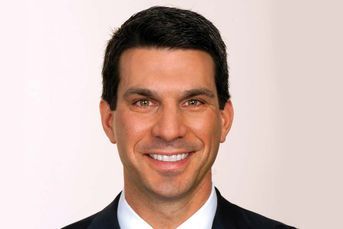Social-fund firm turns to S. Africa
Does South Africa offer a bounty of socially responsible companies? Calvert Group, a leader in socially responsible investing,…
Does South Africa offer a bounty of socially responsible companies?
Calvert Group, a leader in socially responsible investing, is banking on it.
The Bethesda, Md., fund shop plans to launch a South Africa fund this spring and roll its New Africa Fund’s $5 million in assets into it.
RISA Investment Advisers LLC in Philadelphia, which will be the subadviser, will move $1 million in assets from a similar fund into Calvert’s new one.
The move, pending shareholder approval, comes after several years of poor performance and diminishing assets in the New Africa Fund.
Last year, the fund posted a 33.1% loss compared with loss of 17.19% for the benchmark MSCI South Africa Index. The fund’s poor showing in 2000 followed losses of 19.4% and 11.6% in 1999 and 1998, respectively.
And according to Morningstar Inc. in Chicago, seven of the fund’s top 10 holdings as of Dec. 31 were South African stocks.
Investors have pulled their money in light of sour returns. Since reaching just $11 million in 1998, the fund’s assets have dwindled to below $5 million.
So why would Calvert narrow its investing scope in Africa and overlay it with a social screening process that potentially could kick out many of the country’s stocks?
“It’s more of an up-and-coming economy in Africa,” says Catherine Hickey, a Morningstar analyst.
“It may be that investors will make a more positive identification with South Africa as opposed to the whole [continent],” she says. “Maybe that will generate some interest in the fund.”
While Calvert cannot comment because of a regulatory quiet period, the prospectus it filed with the Securities and Exchange Commission says the fund group wants to continue to help economic development in the region by “investing in and assisting with the growth of African companies.”
Although Calvert’s interest doesn’t necessarily translate into returns for shareholders, some South African investors say the country’s stocks can only go up.
Sam Folin, managing director at RISA, attributes part of the investor disinterest to a failure to give the country the credit it deserves.
“The risk there is less than generally perceived by global markets,” Mr. Folin says. “And it’s much more sophisticated than many people realize. It’s got a first-world infrastructure.”
Others say investors lump South Africa in with African economies that appear on the verge of collapse, and that “Afro-pessimism” obscures the country’s economic opportunities.
Still, real problems persist.
The country is only six years into its new life as a democracy, which means it is still taking time to undo much of the social engineering and government control employed under apartheid from 1948 to 1994.
Unemployment remains one of the country’s biggest struggles.
Officially, the unemployment rate is a staggering 25%, but other tallies peg it at an eye-popping 40%. That compares with the U.S. rate, which hovers at around 4%.
But the economy has improved since apartheid was dismantled.
Under apartheid, much of the country’s economy was excluded from the increasingly competitive global economy, partly due to sanctions imposed from disapproving countries.
From 1978 to 1994, under P.W. Botha and F.W. DeKlerk, the South African economy was dominated by four white-owned industry giants, including diamond producer DeBeers and gold-mining conglomerate Anglo American.
change in concentration
At one time, the four companies accounted for close to 50% of the Johannesburg Stock Exchange All-Share Index. Now, thanks to spinoffs and the creation of new companies, that share has dropped to about 21%.
Before the country’s 1994 shift to democracy, economic growth stood at a meager 1.8% a year, inflation reached 14% and government spending accounted for 30.4% of gross domestic product.
Now, growth is closer to 3%, inflation is a tamer 7% and government spending has fallen below 27% of GDP.
“South Africa is very competitive globally,” Mr. Folin says. “The combination of labor, energy and transportation costs and the like make it a highly competitive spot.”
Most importantly from an investment standpoint, he says, corporate earnings are growing quickly – on the order of 28% last year, with similar expectations for this year.
And yet the All-Share Index rang up a loss of 20.9% last year. The index’s average price-earnings ratio for the last 12 months was 9, and it’s projected to be about the same over the next 12 months.
Learn more about reprints and licensing for this article.





